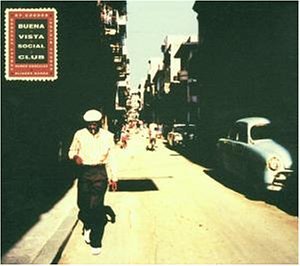
| Artist: | Buena Vista Social Club |
| Title: | Buena Vista Social Club |
| Released: | 1997.09.16 |
| Label: | Elektra/Asylum Records |
| Time: | 59:43 |
| Producer(s): | Ry Cooder |
| Appears with: | |
| Category: | Latin |
| Rating: | *********. (9/10) |
| Media type: | CD |
| Purchase date: | 2003.05.01 |
| Price in €: | 1,00 |
| Web address: |